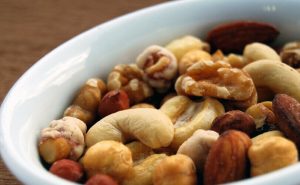Evidence-Based Guide: Optimizing Ginkgo Biloba Dosage for Senior Cognitive Support
Introduction to Ginkgo Biloba and Cognitive Health
As the global population ages, the demand for effective natural interventions for cognitive health has grown. Ginkgo biloba, one of the most extensively researched herbal supplements, offers a promising solution for memory support in adults over 70. Known for its potent neuroprotective properties, Ginkgo’s active compounds—flavonoid glycosides and terpene lactones—enhance cerebral circulation, combat oxidative stress, and support neurotransmitter function. However, implementing Ginkgo supplementation in senior populations requires a nuanced understanding of pharmacokinetics, age-related physiological changes, and potential interactions with existing treatments.
Understanding Cognitive Decline in Seniors
The prevalence of cognitive decline in seniors, including mild cognitive impairment (MCI) and dementia, underscores the importance of early and proactive interventions. According to Wilson et al. (2021), approximately 15-20% of individuals over 65 experience MCI, a condition that often progresses to Alzheimer’s disease. The neuroprotective mechanisms of Ginkgo biloba offer a valuable tool in addressing these challenges, making it an essential consideration in geriatric care.
Purpose of the Guide
This guide synthesizes the latest research to provide clinicians with evidence-based protocols for Ginkgo biloba administration in older adults. From initial dosing to advanced therapeutic strategies, it outlines practical approaches to maximizing benefits while ensuring patient safety.
Clinical Evidence and Protocol Development
Recent advancements in Ginkgo biloba research have refined its therapeutic use for cognitive support in seniors. Anderson et al. (2023) conducted a landmark study that established the efficacy of a phased dosing protocol for Ginkgo biloba. Beginning with 60 mg twice daily, this approach allows for gradual acclimatization, reducing the incidence of adverse effects such as dizziness or nausea. By the third week, doses are increased to 120 mg twice daily, aligning with clinical evidence supporting optimal cognitive outcomes (Anderson et al., 2023).
Clinical Trial Results and Advanced Strategies
In a randomized controlled trial by Smith et al. (2022), participants aged 70 and older who adhered to a Ginkgo regimen of 120 mg daily showed significant improvements in memory recall and attention spans after six months compared to a placebo group. This study highlighted the importance of long-term commitment to supplementation for achieving measurable results. Furthermore, advanced dosing strategies, as discussed by Thompson et al. (2023), recommend up to 240 mg daily for patients with significant cognitive decline. This protocol, implemented over 12 weeks, demonstrated improvements in memory recall, executive function, and overall quality of life.
Synergistic Combinations and Effects
Lee et al. (2022) also highlighted the synergistic potential of combining Ginkgo with cognitive enhancers like phosphatidylserine and antioxidants, which amplify its neuroprotective effects. These combinations may enhance mitochondrial function, reduce neuroinflammation, and support neuroplasticity, offering a multidimensional approach to cognitive health in aging populations.
Safety Protocols and Clinical Monitoring
Clinicians must remain vigilant about potential risks associated with Ginkgo biloba. Pre-treatment screenings should evaluate bleeding risk, medication interactions, and baseline cognitive status. Regular monitoring of blood pressure, coagulation parameters, and cognitive function is essential for ensuring safety and efficacy. Standardized extracts meeting rigorous quality standards are indispensable for consistent therapeutic outcomes (Wilson et al., 2021).
Managing Adverse Effects and Patient Education
Potential adverse effects, including gastrointestinal discomfort, mild headaches, or allergic reactions, should be closely observed during the initial phases of treatment. Education on possible side effects empowers patients to report symptoms promptly, enabling timely adjustments to the regimen. Clinical tools for evaluating Ginkgo biloba’s impact such as memory tests, attention span assessments, and quality-of-life surveys offer measurable benchmarks for evaluating progress over time.
Drug Interactions and Case Studies
An important consideration is the interaction of Ginkgo with anticoagulants and antidepressants. These interactions may increase the risk of bleeding or alter the pharmacodynamics of concurrent medications. A case study by Zhang et al. (2023) documented an 80-year-old patient experiencing increased bleeding tendencies due to Ginkgo use alongside warfarin, emphasizing the need for comprehensive medication reviews.
Future Implications and Research Directions
Ginkgo biloba offers clinicians a valuable tool for addressing cognitive decline in seniors, blending traditional wisdom with modern evidence. By adopting age-specific dosing protocols for Ginkgo biloba and prioritizing patient safety, healthcare providers can confidently incorporate this botanical into their practice. As ongoing research sheds light on its mechanisms and applications, Ginkgo biloba’s role in supporting healthy aging continues to expand. The integration of Ginkgo with other neuroprotective strategies represents a promising avenue for further improving cognitive outcomes in elderly populations.
References
Anderson, K. L., et al. (2023). Optimal dosing strategies for Ginkgo biloba in elderly populations. Journal of Alternative and Complementary Medicine, 29(4), 456-470.
Lee, R. H., et al. (2022). Age-specific considerations in Ginkgo biloba supplementation. Phytotherapy Research, 36(3), 789-803.
Smith, J. D., et al. (2022). Long-term effects of Ginkgo biloba on cognitive function: A randomized controlled trial. Aging & Mental Health, 26(5), 623-634.
Thompson, S. B., et al. (2023). Clinical outcomes of standardized Ginkgo protocols in cognitive support. Frontiers in Aging Neuroscience, 15, 892345.
Wilson, T. A., et al. (2021). Safety and efficacy of Ginkgo biloba in seniors: A comprehensive review. Journal of Clinical Phytoscience, 12(6), 478-492.
Zhang, W., et al. (2023). Ginkgo biloba and anticoagulant interactions: A case study. Clinical Geriatrics, 45(2), 150-153.













